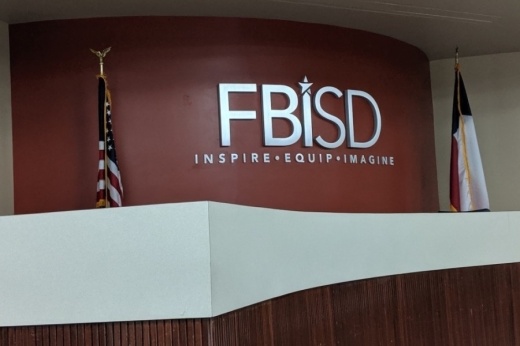In a nutshell
Hill highlighted the continuing growth and academic results of the district’s special education program at the March 4 FBISD board of trustees meeting.
Enrollment has spiked in the last decade, and a lack of financial and personnel resources has made it difficult to keep up with the ever-increasing demand, Hill said. As a result, the Texas Education Agency notified FBISD in August that the district was out of federal compliance for the 2023-24 school year, Hill said.
The student support services department has fallen behind on the initial evaluations required for students to receive special education services for the last five school years, and secondary evaluations typically scheduled to be performed every three years.
“What's happened over the last three or four years is we've been focusing so much on the initial [evaluations] ... that we've gotten behind on the re-evaluations. One of the reasons why is that you cannot receive any specialist services if you haven't had the initial evaluation,” Hill said. “But after you receive the initial evaluation, you can receive services. So if a re-evaluation is delayed, it doesn't stop you from receiving specialist services.”
Despite currently being out of compliance, Hill said she expects the district to be in compliance by the end of the school year, as it has done in the past five school years.
This responsibility began in 1975 with the passage of the Individuals with Disabilities Education Act into federal law. The TEA is responsible for ensuring districts are compliant with the federal guidance.
The district has a full calendar year to meet compliance requirements, Hill said March 4.
The background
The TEA annual assessment of the State Performance Plan indicators occurs at the beginning of the school year based on the previous year’s number of students who need to receive evaluations for special education services.
Regardless of whether a child with special needs is attending FBISD schools, all children must complete an initial evaluation of their needs by the district before they can receive services, Hill said.
“And initial special education evaluation can happen throughout the whole school year. It's not [just at] the beginning of the school year,” Hill said in an interview. “We get requests for initial [evaluations] every single day—multiple hundreds—and we evaluate students who are in school; who are not in school but are 10 years old; that live in our district and are turning 3; and students that are attending private schools or are homeschooled who live in our district.”
As a matter of prioritization, Hill said her team focuses on performing the initial evaluations to best serve the community’s needs, as students can’t access the services needed until they’ve been evaluated.
Zooming in
The number of students enrolled in special education services has increased from roughly 4,571 in the 2014-15 academic year to slightly over 11,826 in 2023-24—as Hill highlighted in the Nov. 13 presentation.
The number of students needing special education services has outpaced the overall enrollment in the same period, district data shows. The total enrollment for the 2014-15 school year was 71,229, and the current enrollment for the 2023-24 school year is 80,730.
While total enrollment grew by 13.3% during that time, special needs enrollment grew by 158.7%.
By the numbers
The required evaluations are broken out by the initial and the re-evaluation.
- 1,868 initial evaluations were completed through February out of 2,368 due for compliance.
- 1,021 re-evaluations were completed through February, and another 2,720 re-evaluations are overdue.
During the March 4 meeting, trustee David Hamilton said he was concerned about the ongoing compliance issues and what the TEA might do regarding them.
Hill said mainly contract staff are helping the department with the evaluations, but current budget does not allow for hiring permanent staff to meet the challenges faced by the department.
“We did get the additional money in the fall, and there's still a need for more money. We've been working closely with business and finance to figure out how to get that additional money for this school year. ... For next school year, we've added many more positions in the budget,” Hill said. “But there's not enough money to get through what we need for the year, but we're working on trying to figure out how to do that.”
Had the board chosen a larger tax increase for the voters to approve in November, there would have been more funding to allocate specifically for special education, Hamilton said.
District officials presented to the board tax increase options of $0.02, $0.03, $0.04 and $0.05 in addition to recommending raises, other staffing and security personnel, and other measures.
“Several of our colleagues here supported the 5-cent option because there was $3 million for special education that was only listed in that option,” Hamilton said.
What’s happening
To help meet the demand of the special education department as well as other staff, FBISD is holding a job fair April 6. The district has 240 job openings listed on its website.
According to a district news release, it encourages candidates are needed for all district job roles, including teachers and staff.





